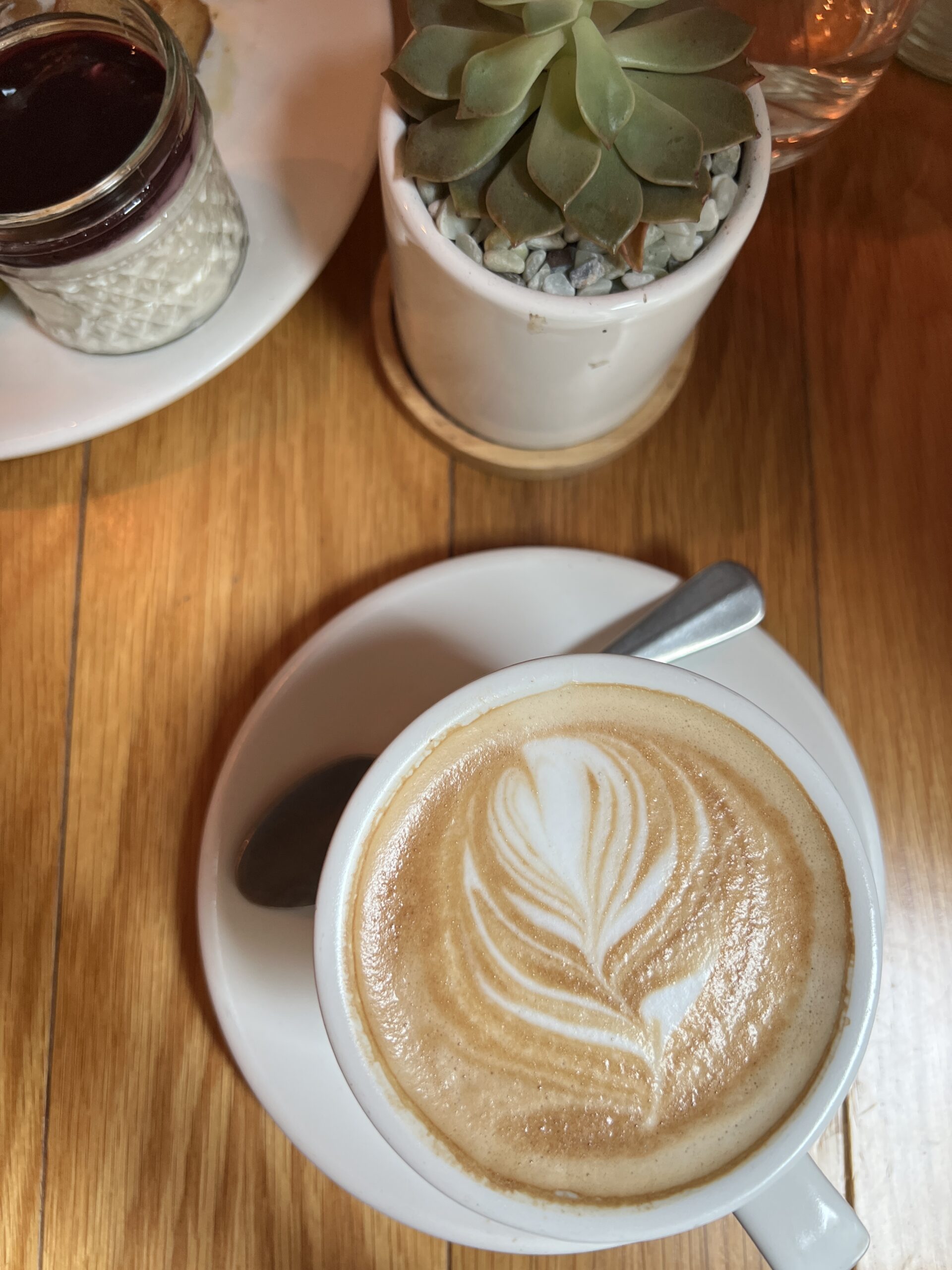
A cup of coffee or tea is permanently staple in my morning routine, so as someone who keeps kosher, I understand the importance of making sure that our favorite beverages align with our kosher dietary preferences. So when it comes to determining whether coffee and tea are kosher, there are a few key factors to consider that go beyond just the taste. Let’s start at the beginning!
What does kosher mean?
Firstly, for those of you who are not familiar with what kosher means, kosher is a term that holds significant meaning within the Jewish community and refers to how to prepare and eat food and beverages according to Jewish dietary laws, known as kashrut.
The concept of kosher is not just about the ingredients in a particular food or drink but also includes preparation, processing and handling. It also involves a comprehensive set of rules that govern various aspects of food production, including sourcing, slaughtering, and cooking methods.
To be kosher, food must meet specific criteria. For example, in the case of meat, it must come from kosher animals and have been slaughtered in a specific manner known as shechita. Additionally, the meat must undergo a process called koshering, which involves removing the blood from the meat according to Jewish law.
When it comes to dairy products, kosher guidelines dictate that they must come from kosher animals and be free from any mixture of meat or meat by-products. It’s a good idea to keep utensils for dairy and meat separate to avoid cross-contamination.
Kosher laws also extend beyond the ingredients themselves and encompass the supervision and certification of food production. Many kosher products bear a kosher symbol, such as the OU symbol (which I’ll talk more about later), indicating that they have been inspected and approved by a recognized and reliable kosher certification agency.
Is Coffee Kosher?
Coffee in its true form, plain black coffee or unflavored coffee, is generally kosher. So while the type of coffee might not matter, to make sure that it is kosher, it primarily involves verifying the kosher status of the beans themselves. This means that the beans undergo a specific process to make sure that they’re free from any prohibited ingredients. The process may include careful sourcing, roasting, and packaging to maintain the kosher integrity of the beans.
Sourcing plays a crucial role in determining the kosher status of coffee beans. The beans must come from a reliable and trusted source that adheres to kosher standards. This means that the entire supply chain, from the cultivation of the coffee plants to the harvesting and processing of the beans, must follow kosher guidelines.
After sourcing beans, the next step is the roasting process. Roasting is a critical stage in coffee production that brings out the flavors and smells we love. To maintain the kosher integrity of the beans, the roasting equipment and facilities must be dedicated exclusively to kosher products. This prevents any cross-contamination with non-kosher substances.
Packaging is another aspect that requires attention to maintain the kosher status of coffee beans. The packaging materials must be free from any non-kosher substances or contaminants. Additionally, the packaging process should happen in a kosher-certified facility to prevent any compromise in the kosher integrity of the beans.
To simplify the process of choosing kosher coffee, look for coffee products that display a reliable kosher symbol, such as the OU symbol or a similar certification. These symbols indicate that the coffee beans meet the requirements.
Is decaffeinated coffee kosher?
Decaf coffee can be kosher, but it depends on the specific process used to remove the caffeine. The methods and ingredients used during the decaffeination process dictates the kosher status of decaffeinated coffee. Decaffeinating coffee commonly uses two main methods: the Swiss Water Process and the solvent-based method. It’s essential to verify that the specific decaffeination method used is acceptable within kosher guidelines.
- Swiss Water Process: This method is the more a natural and chemical-free way to decaf coffee. It involves soaking the green coffee beans in hot water to extract the caffeine. The resulting water, which contains the coffee flavor but no caffeine, passes through activated charcoal filters to remove the caffeine. This method is kosher.
- Solvent-based Method: The solvent-based method is a chemical process that involves using solvents to extract the caffeine from the coffee beans. There are two common solvents: ethyl acetate and methylene chloride. In the ethyl acetate method, the beans soak in a solution of water and ethyl acetate, a naturally occurring compound found in fruits. This is NOT kosher.
Is flavored coffee kosher?
Various flavors of coffee can be kosher, but it is crucial to consider the specific flavorings used in the coffee. The kosher status of flavored coffee depends on whether the additives or flavorings in the coffee are kosher-certified.
Various ingredients and flavorings can enhance the taste and smell of flavored coffee. These flavorings can include natural or artificial extracts, spices, syrups, or other additives. To make sure that the flavored coffee stays kosher, it’s important to verify if it’s certified kosher.
Is tea kosher?
Tea is a little more straightforward. Tea, in its natural form, is generally kosher. The natural leaves used to make tea are typically kosher. However, when it comes to flavored or infused teas, it’s important to delve deeper into the ingredients and flavorings used to ensure their kosher status.
Flavored or infused teas often contain additional ingredients, such as herbs, spices, fruits, or flowers, to enhance their taste and smell. These additives can vary widely, and it’s crucial to verify their kosher certification. Some flavorings may come from non-kosher sources or processed in a way that is not kosher.
It’s worth noting that the kosher status of tea extends beyond just the ingredients. Keeping utensils for brewing and serving tea separate from non-kosher utensils to prevent cross-contamination.
What about coffee shops?
When visiting coffee shops, there are a few things you can look for to ensure that the coffee and other products meet your kosher requirements:
- Kosher Certification: Check if the coffee shop has a visible kosher certificate displayed. Look for symbols or certificates from reputable kosher certification agencies such as OU, OK Kosher, Star-K, or others. This indicates that the coffee shop has undergone inspections and meets the standards of kosher dietary laws.
- Ingredient Transparency: Inquire about the ingredients used in the coffee and other products. Ask if there are any flavorings, syrups, or additives and whether they have a kosher cerification. It’s important that all components of your coffee drink align with your kosher dietary preferences.
- Dedicated Equipment: Find out if the coffee shop has separate equipment for preparing kosher and non-kosher items. This helps prevent cross-contamination and makes sure that your coffee is preparation process follows kosher guidelines. For example, it’s important that the ingredients in the espresso machines, like coffee beans, water, and any additives, are kosher.
- Utensil Separation: Check if the coffee shop uses separate utensils for dairy and meat products. This is important if you follow specific kosher dietary practices that require the separation of dairy and meat.
- Communication with Staff: Feel free to communicate with the staff about your kosher requirements. They may be able to provide information about the sourcing, preparation methods, and any kosher certifications they have in place.
Remember, each coffee shop may have different practices and policies regarding kosher offerings. It’s always a good idea to do some research beforehand or reach out to the coffee shop directly to inquire about their kosher options. By being proactive and asking the right questions, you can enjoy your coffee shop experience.
What about instant coffee and pod coffees?
Whether or not instant coffee or pod coffees are kosher depends on the specific brand and product itself. Some brands of instant coffee and coffee pods have obtained kosher certification. When purchasing instant coffee or coffee pods at the grocery store, I recommend looking for products with reliable kosher symbols or certifications on the packaging to be on the safe side.
What kosher certifications should I look out for?
I’ve mentioned a few kosher certifications, and there are several you should be aware of. Here are some of the most common certifications you should look for:
- OU (Orthodox Union): The OU symbol is one of the most widely recognized kosher symbols worldwide. The Orthodox Union issues this symbol and they are one of the largest and most respected kosher certification agencies.
- OK Kosher: The OK symbol is another well-known kosher certification. OK Kosher Certification issues this symbol and they are a leading kosher certification agency with a global presence.
- Star-K: The Star-K symbol is a prominent kosher certification issued by Star-K Kosher Certification. This is a widely recognized organization that certifies products and establishments as kosher.
- Kof-K: Kof-K Kosher Supervision issues the Kof-K symbol. They are a respected kosher certification agency that certifies products and establishments worldwide.
- CRC (Chicago Rabbinical Council): The Chicago Rabbinical Council issues the CRC symbol. They are a renowned kosher certification agency that provides certification for products and establishments.
- MK (Montreal Kosher): The Montreal Kosher certification agency gives the MK symbol, which certifies products and establishments as kosher.
- Star-D: The Star-D symbol indicates that a product is dairy kosher, meaning it is free from any mixture of meat or meat by-products.
These are just a few examples of kosher certifications that you may come across. It’s important to note that different kosher certification agencies may have their own unique symbols or logos.
So to sum it all up, the next time you reach for a cup of coffee or tea, I hope this guide has given you some insight and knowledge about what types of coffee and tea are kosher and what to look out for when you’re looking for kosher coffee.







